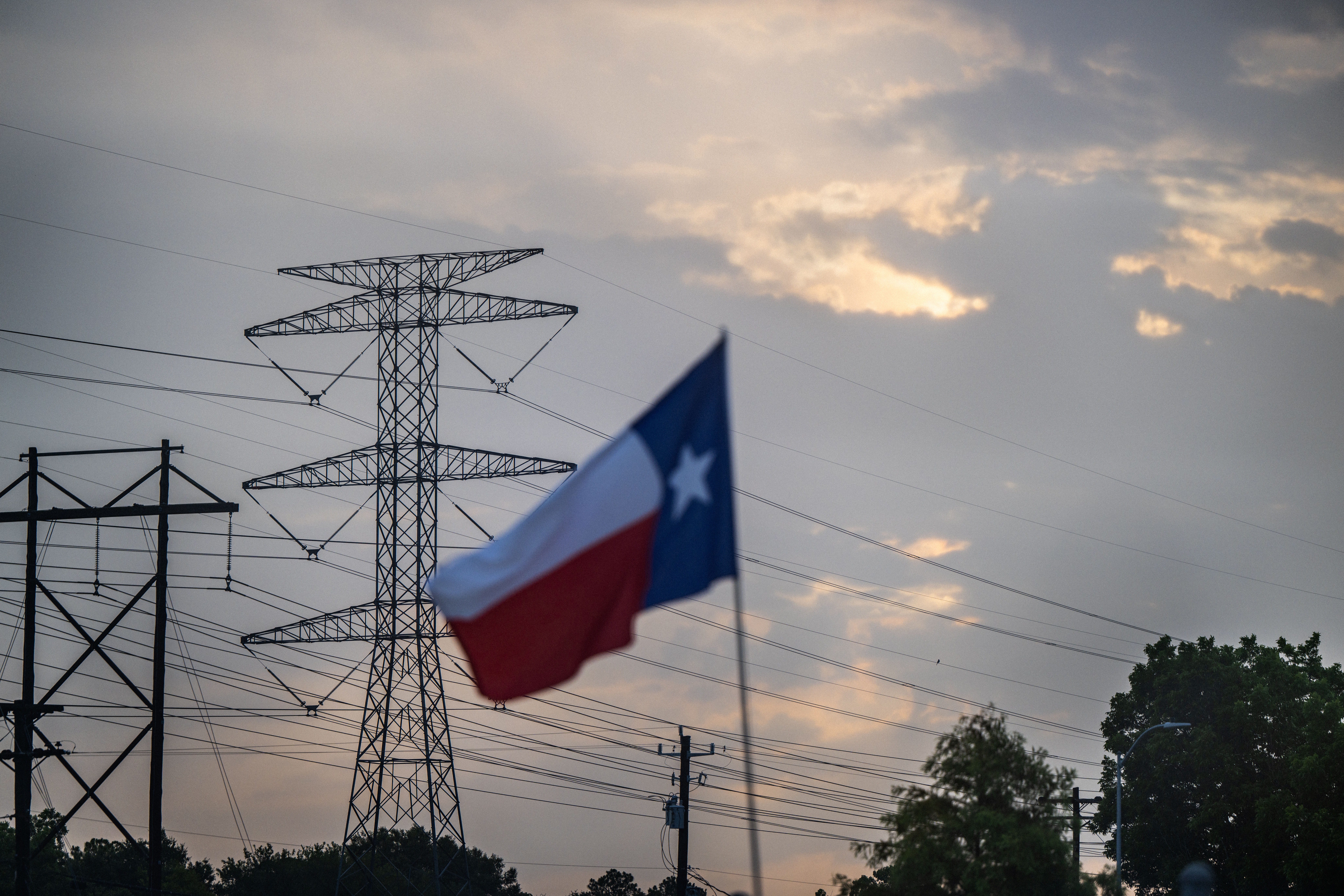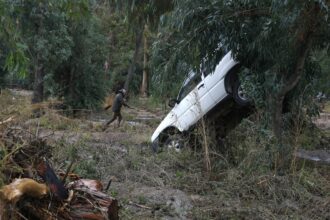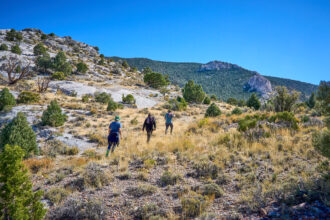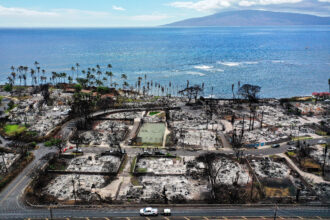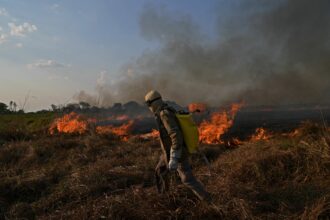Exposure to wildfire smoke and air pollution from farming operations could be making Americans more susceptible to developing dementia, a recent study found. It’s among a growing body of research to draw attention to the long-term health impacts of wildfire smoke as climate change drives increasingly destructive, deadly and smoky blazes around the world.
The University of Michigan study, published last month in the Journal of the American Medical Association’s Internal Medicine, looked at the dementia prevalence in nearly 30,000 U.S. adults, using data that was gathered over two decades in a major national health survey. The researchers then ran that data through a computer model to compare it to air pollution estimates based on participant home addresses.
The study found that places with higher levels of fine particulate matter pollution–or PM2.5–-also had higher rates of dementia, and that correlation was especially strong when the pollution came from wildfires and agriculture. PM2.5 refers to some of the smallest and most harmful microscopic particles that get released during a fire. The tiny particles are 30 times smaller than the width of human hair and can lodge deep in lung tissue to cause a variety of serious health problems, including lung disease and premature death.
Past studies have already established that exposure to particulate pollution can lead to higher rates of Alzheimer’s disease and other forms of dementia. But the University of Michigan study is among the first to examine the link specifically with wildfire smoke, which research has shown can contain upwards of 10 times more particulate matter than any other pollution source, including car exhaust.
“We saw in our research that all airborne particles increased the risk of dementia but those generated by agricultural settings and wildfires seemed to be especially toxic for the brain,” said Sara Adar, the study’s lead author and an associate chair of the Department of Epidemiology for the university’s school of public health, in a press release. “Our findings indicate that lowering levels of particulate matter air pollution, even in a relatively clean country like the United States, may reduce the number of people developing dementia in late life.”
The author’s also noted that their findings couldn’t be explained by other factors such as socioeconomic status, occupation or region of the country.
Dementia is the world’s seventh leading cause of death and one of the major causes of disability and dependency for older adults, with more than 55 million people worldwide diagnosed with some form of the disease, according to the World Health Organization.
The University of Michigan’s study adds to a growing list of long-term health complications now associated with wildfire smoke. Research has shown that exposure to wildfire smoke can increase the chance of developing lung, cardiovascular and eye disease, with health risks especially high among children, the elderly and those with pre-existing conditions such as diabetes. Some studies even suggest that early exposure to wildfire smoke can alter childrens’ genes, complicating the development of their nervous and immune systems.
Those health risks will only get worse, experts say, as global warming fuels wildfires that burn bigger, hotter and faster. Wildfire impacts are also beginning to emerge in unexpected places and during unexpected times—such as Hawaii’s tragic blaze last month that killed at least 115 people and razed an entire town to the ground.
In fact, the U.S. has seen a record number of air quality alerts this year, in part because of the massive wildfires still burning across Canada. This summer, smoke from those fires traveled thousands of miles into the U.S., where it blotted out entire skylines in urban hubs like New York City and Chicago and surprised residents who aren’t used to dealing with such problems.
It’s an issue that the University of Michigan researchers acknowledged in their study as well.
“This research suggests that it’s not just sending people with respiratory ailments to the hospitals but there may also be longer lasting effects to the body,” the authors wrote, in reference to wildfire smoke. “With the changing climate, it’s likely that these threats to health will increase.”
More Top Climate News
G20 Nations Pledge to Triple Renewables but Won’t Agree to Fossil Fuel Phase Down: The world’s 20 richest nations pledged over the weekend to triple the world’s amount of renewable energy capacity by the end of the decade, under a new deal struck at the Group of 20 summit held in India, Shivam Patel reports for Reuters. Still, it may not be enough to curb runaway climate change. The coalition stopped short of committing to a plan to phase down their fossil fuel use. Experts once again warned that if nations don’t cut their fossil fuel use soon, there’s no hope to meet the Paris Agreement targets.
Alaska Sues Biden Over Logging Protections for Tongass National Forest: President Joe Biden may have declared several new efforts to curb climate change, including recently canceling oil and gas drilling leases in Alaska. But the major oil-producing state is pushing back. Last week, Alaska officials announced they were suing the Biden administration for its decision to reinstate protections from logging in the Tongass National Forest, Rachel Frazin reports for The Hill. As the largest U.S. national forest, Tongass stores a significant amount of carbon dioxide, preventing it from heating the planet.
Renowned Conductor Allows Climate Activists to Interrupt Swiss Music Festival: Vladimir Jurowski, director of the Bavarian State Opera and a renowned Russian conductor, allowed climate activists to disrupt his performance at a popular classical music festival in Switzerland last week, Jack Guy and Inke Kappeler report for CNN. In fact, the famed maestro had struck a deal with the young activists, even telling those grumbling in the audience to let the advocates speak or he’d walk off stage himself.
Today’s Indicator
200%
That’s how much more efficient heat pumps are at warming a home during cold weather when compared to boilers running on fossil fuels, according to a new study. The research assuages doubts about whether the energy-efficient technology can work well in subzero conditions.












